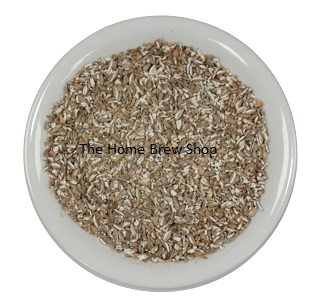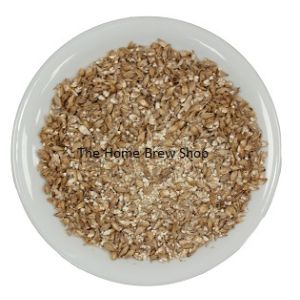Special Malted Grains
Lots of Special Malt Types

-
-
- Carapils Malt 500g - Crushed - Malt£2.10 £1.75
- Biscuit Malt 500g Crushed - Castle Malting£2.22 £1.85
- Acid Malt 500g Crushed£2.70 £2.25
- Aromatic Malt Milled 500g | Simpsons Malt£1.38 £1.15
- Pale Rye Malt 500g Crushed£1.74 £1.45
-
- Cara Amber® Malt 500g Crushed malt£2.10 £1.75
- Cara Aroma® 500g Crushed malt£1.98 £1.65
- Cara Red Malt 500g Crushed | Weyermann£2.16 £1.80
- Cara Rye Malt 500g Crushed£1.98 £1.65
- Cara Wheat® - Crystal Wheat Malt 500g Crushed£2.10 £1.75
- Carafa® Special 1, 500g Crushed malt£2.34 £1.95
- Carafa® Special 2, 500g Crushed malt£1.92 £1.60
- Carafa® Special 3, 500g Crushed malt£2.52 £2.10
- Carahell ® Malt 500g Crushed£2.10 £1.75
-
- English Caramalt 500g Crushed£1.56 £1.30
- Melanoidin Malt 500g Crushed£2.22 £1.85
- Imperial Malt 1kg Crushed | Simpsons Malt£2.28 £1.90
- Special B Malt 500g Crushed£2.52 £2.10
- Red Rye Crystal 1kg Crushed | Simpsons Malt£2.40 £2.00
- Juniper Berries 100g£3.96 £3.30
- Coriander Seeds 100g£2.22 £1.85
- Judge Kitchen 5kg Digital Bowl Scale£18.00 £15.00
Specialty Malts
Specialty malts are key ingredients in the production of beer, providing unique flavours, aromas, and colours. These malts are made by roasting or kilning grains to varying degrees, which affects the final product's taste and appearance.
One popular type of specialty malt is caramel malt, which is made by heating the grain until it caramelizes. This process gives the malt a sweet, nutty flavour and a deep brown colour. Another type is chocolate malt, which is roasted until it turns dark brown and has a distinct chocolate flavour. This malt is commonly used in stouts and porters.
Roasted barley is another type of specialty malt, which is roasted until it is almost black. This malt has a strong, bitter flavour and is often used in dark beers. Smoked malt is made by drying the grain over a fire, giving it a smoky flavour that is often used in rauchbier.
Specialty malts can also be used to add complexity and depth to lighter beers. For example, wheat malt can be used to add a crisp, refreshing flavour to pale ales and lagers. Honey malt, made from malted barley and honey, can add a sweet, honey-like flavour to beers.
In addition to their flavour and colour contributions, specialty malts also provide important nutrients for yeast during the fermentation process. This helps to ensure a healthy and consistent fermentation, resulting in a high-quality final product.
Overall, specialty malts are an essential component of beer production, providing unique flavours and aromas that make each beer truly special. Whether you are a homebrewer or a professional brewer, incorporating specialty malts into your recipes can help you create delicious and distinctive beers.

























